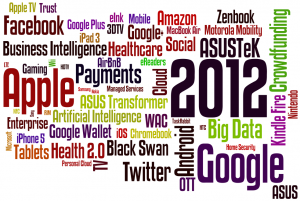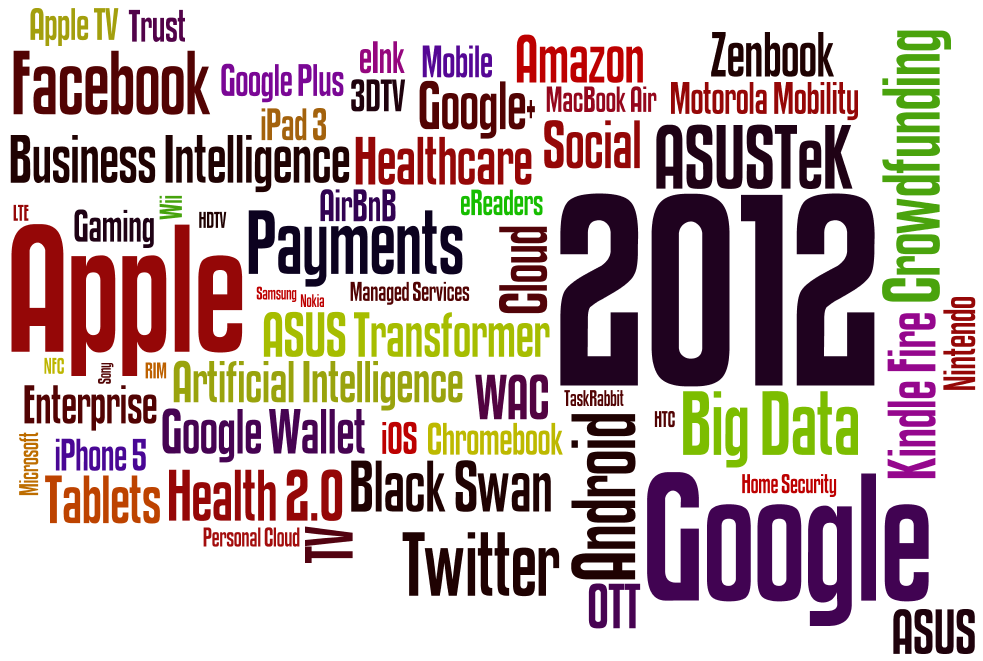 For the past 5 years I’ve been privately tracking the accuracy of my predictions, I must admit that my results have been pretty good. For the last two years I’ve been publishing annual prediction podcasts within Amdocs called DoxCast which, together with Adi Lachman, I’ve co-created and co-hosted. DoxCast gave me an opportunity to be “on the record” with my yearly predictions – for 2010 and 2011. My accuracy on these is 77%. With these results, it seems appropriate to start a new tradition on my blog – annual predictions for the year to come. Without further ado, here are my predictions for 2012 in no particular order: Continue reading My 2012 Predictions
For the past 5 years I’ve been privately tracking the accuracy of my predictions, I must admit that my results have been pretty good. For the last two years I’ve been publishing annual prediction podcasts within Amdocs called DoxCast which, together with Adi Lachman, I’ve co-created and co-hosted. DoxCast gave me an opportunity to be “on the record” with my yearly predictions – for 2010 and 2011. My accuracy on these is 77%. With these results, it seems appropriate to start a new tradition on my blog – annual predictions for the year to come. Without further ado, here are my predictions for 2012 in no particular order: Continue reading My 2012 Predictions
Tag Archives: OTT
CES 2011 Wrap-up

It’s quite a challenge to add to the plethora of CES 2011 blogs. This post puts together some of my key observations. I didn’t touch on everything I saw and might have even missed key insights, so it’s not “the definitive” guide to anything CES. The show is huge and there were over 140,000 people there, so it wasn’t easy to catch all the action. But I did see a lot, and gain some insight along the way:
The Impact of Social Communications on Communication Service Providers
 This blog post is going to be a little bit different than the past few posts. This time, I really need your ideas about a topic that’s been on my mind for a while. I’m just going to tee up the discussion and ask you all to help with ideas.
This blog post is going to be a little bit different than the past few posts. This time, I really need your ideas about a topic that’s been on my mind for a while. I’m just going to tee up the discussion and ask you all to help with ideas.
I’ve been giving a lot of thought to the tsunami of social media, and in particular, that of social communications, and its impact on communication service providers – in particular, on fixed line and mobile operators. Social communications are the communications facilitated by social media, especially in the form of Facebook and Twitter, but also LinkedIn, YouTube, blogs and talkbacks. While social media impacts all businesses – which I’ll touch on briefly – the sector which is most affected by social media is the communication service providers whose core business is providing means of communications and connectivity, mostly paid services. Social communications are obviously competing with and are possibly disruptive to the business of communication service providers. With this in mind, I pose the following question:
What should communication service providers do in order to mitigate the impact or even benefit from the evolution of social communications?
Continue reading The Impact of Social Communications on Communication Service Providers
Why OTT Video Might Not Be So Disruptive After All
Earlier this year, I presented at OTTcon. This was the first major conference about OTT (video) ever, and was attended by a few hundred people and many industry players. Coming into this conference, I was under the distinct impression that OTT is a significant disruption to traditional service provider business and that it would have a significant and negative long-term impact on that marketplace. The common wizdom is that service providers who have the most to lose will be the least motivated to support OTT, and will therefore be the last to embrace it, if ever, will ultimately face the disruptive impact most of all, possibly losing their video distribution business over time.
But—I came out of the conference with the opposite conclusion! It’s not that OTT won’t be disruptive – it will, but not “as” disruptive as one might expect. And most of the market players will probably remain in place and not be sidelined by OTT. If it were truly disruptive, it would harm the existing service providers more than I expect it actually will.
Why? Because I think the current service providers themselves will ultimately be the ones that enable OTT content, thus avoiding a major disruption – whether they know it right now or not! In fact, right now, they’re doing very little, and most OTT is being enabled by others. So why do I think they’ll wake up in time? Read on to find out.

Some background
In case you’re wondering, OTT means “over the top” and it refers to all traffic that flows “on top” of broadband access, typically provided by someone else. For the service provider who provides the access to the Internet, this is just “data”, but for the consumer, this is “video”. While there are many other types of OTT content, this conference was only about video. When I’ll use of the term and “OTT” here, I’m referring only to over-the-top video content.
Continue reading Why OTT Video Might Not Be So Disruptive After All


